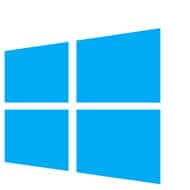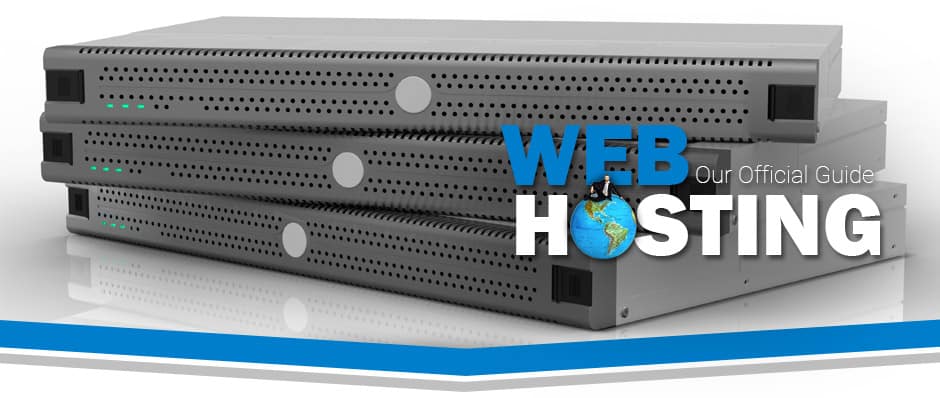Deciding on whether to choose Windows or Linux for your web hosting operating system is an important decision and will ensure that your site gets off to a good start.
For example, sites already developed with dependencies on Windows codebases will have a hard time launching on a Linux host (and vice versa).
Therefore, it’s important to know the differences between the two operating systems and which one you should choose for your hosting plan.
Differences Between Windows & Linux
The biggest difference between Windows and Linux is cost.
Because Linux is (for the most part) not sold for profit, but is shared freely through a licensing method called Gnu Public Licensing (GPL), anyone can download and use it free of charge. Windows is owned and licensed for a fee by Microsoft. Windows is an executable and its source code is proprietary.
In contrast, anyone with sufficient programming talent can download, deconstruct, and compile a new version of Linux to distribute. Under the GPL, the source code is not proprietary to one individual or company and must be distributed for free along with the executable (also called a “binary”).
Companies do make money off of Linux distributions by selling Linux support and consulting. Some even make money from GPL executables, but commercial restrictions still apply to the source code.
Technologically, the biggest differences most users will notice between Windows and Linux are in the underlying file system, code architecture, and command line syntax.
Though Windows shares more in common with Linux than it used to (Windows NT being a first attempt by Microsoft to imitate Unix-like kernel architectures), the two are still significantly different enough to be treated separately by hosting companies.
How to Choose Either Windows or Linux O/S for Web Hosting
Most of the differences between Windows and Linux, again, are in the architecture of the operating systems.
While emulator software has been written for both platforms so that one can run the software of another, applications written for Windows cannot natively run on Linux, nor can Linux applications run natively on Windows.
For performance and stability reasons, web hosts don’t typically support emulations.
You’ll know whether to host on Windows if your website or web application relies on any of the following Windows technologies:

- ASP Classic
- NET
- C#
- Microsoft SQL Server (MSSQL)
- Microsoft Access (MS Access)
- Visual Basic Development
- Remote Desktop
Likewise, if you have a need to use SSH or scripts and applications that require certain Apache web server modules, most web hosts will require that you host on Linux.
If you’re not truly sure yet whether you need one or the other, ask the pre-sales or support teams at the web hosts you’re considering.
Is Unix the Same as Linux?
You may have heard the operating system names “Unix” and “Linux” used interchangeably. While Unix and Linux are technically two different sets of code, they do share much in common.
The reason for the difference has to do with the evolution of a base operating system called Unix, invented in AT&T’s Bell Laboratories in the 1970s.
Over time, it became very popular and branched into other versions (called “flavors”) with different names. One of those versions is called Linux. Linux became a very popular version to use for web hosting, mostly due to the rising popularity of open source software as a way to reduce operating costs.
For purposes of this article, and because Linux is more popular than its Unix predecessor as a web hosting operating system, we will refer to non-Windows hosting as “Linux”, but with the understanding that Unix is still made available by several web hosting companies.
Pros & Cons of Windows & Linux
Depending on whom you ask, there are long lists of pros and cons for both Windows and Linux as a general operating system and as a web hosting platform. Instead of such an exhaustive listing, we’ll provide a few key ones that apply to web hosting in general.
Security
Because the web, by its very nature, is a network used by people with both good intentions and bad, the good need to be protected from the bad. For that reason, web hosts are very concerned about website security for their customers.
Linux is considered by many to be more secure than Windows. But both operating systems can be equally secure. Security really depends more upon the server setup and the administrators running the server.
That said, Windows has a long history of having a bad reputation for hosting numerous viruses, trojans, and worms that hackers use to exploit and take over websites. People are almost as aware of the security issues Windows has as they are aware of Windows itself.
It’s been joked about in technology circles for at least two decades!
While Microsoft has made great strides in securing its software (because it is so popular and widely distributed) it remains a high-profile target for cyber-criminals.
On the hosting end, that means additional time and money spent configuring and updating Windows to guard against those threats. Those costs reduce profitability and, in some cases, are charged back to the customer in the cost of the hosting.
Linux, on the other hand (still certainly not free of security issues) suffers less than its counterpart in the area of viruses, trojans, and worms. That is largely due to the big community of software developers constantly reviewing, adjusting, and rewriting code to guard against known threats.
For this reason, among others, Apple switched its proprietary Mac operating system to a Linux distribution of its own making in part to further protect its reputation as being relatively virus-free.
In this way, crowdsourcing an operating system has proven to be superior to proprietary development.
Cost
Again, cost is paramount when scaling web hosting data centers. It is one thing to pay the licensing costs to run a single website on a Windows server, but quite another to grow to the size that most web hosts need to be in order to compete.
Linux is free of charge to anyone, so it is the natural choice for most web hosting companies as a default. While they still offer Microsoft hosting, those licensing overhead costs are largely passed on to the customer, who, in turn, might see it in his/her best interest to switch to Linux hosting.
Performance
While it’s impossible to make a direct comparison measuring the performance of Linux or Windows, Linux is used on 70% of web servers world-wide. This can be taken as a good indicator that, on the whole, website owners are happier with Linux web hosting performance (and other factors) than with Windows.

Best Windows & Linux Web Hosting
For a list of Linux web hosts, refer to our best web hosting, best cheap web hosting and cheap WordPress hosting companies lists.
For Windows web hosting, Hostgator is one of the most popular Windows web hosts on the market. Their Windows web hosting plans offer full compatibility with all the latest Windows features, including MS Access Database, MS SQL, ASP, and Plesk. Be sure to choose their Windows web hosting service at checkout.
THE BEHIND THE SCENES OF THIS BLOG
This article has been written and researched following a precise methodology.
Our methodology

